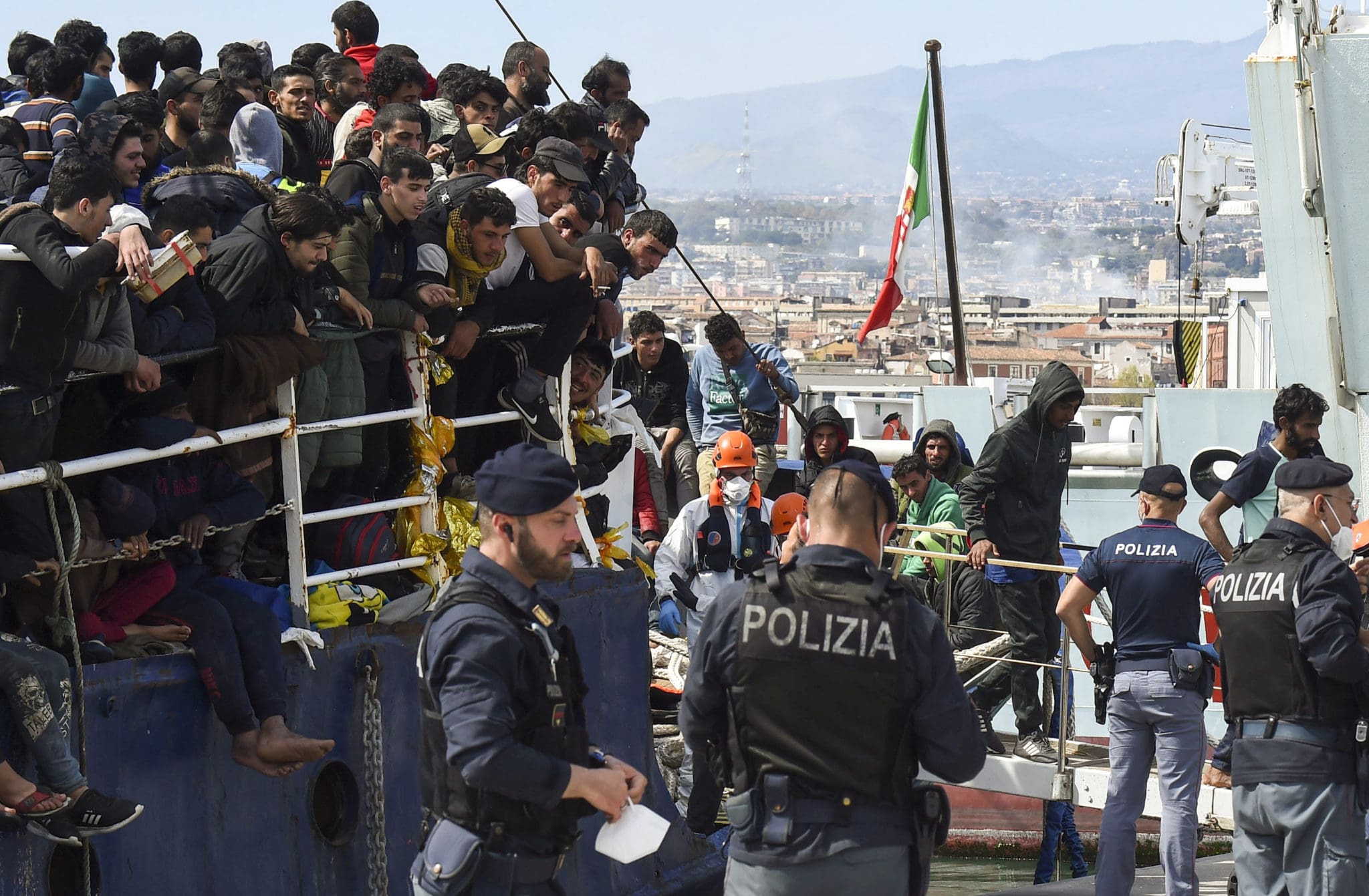The number of illegal migrants attempting to reach Italian shores from North Africa sky-rocketed by 292 percent in the first four months of the year, new figures released by the Frontex border agency on Monday revealed.
New arrivals using the Central Mediterranean route into the European Union reached 42,165 between January and April with 14,474 attempted crossings in April alone.
The figure is a record high since Frontex began collecting data in 2009, surpassing the previous migrant crisis of 2015-2016.
[pp id=71053]
Attempted crossings into the European Union have declined on other routes so far this year, with the Central Mediterranean route accounting for just over half of all new arrivals into Europe. The route is most popular among migrants from the Ivory Coast, Guinea, and Pakistan, which make up the top three nationalities in the Frontex data.
“Criminal smuggling groups are increasingly using makeshift metal boats hastily assembled within hours of departure. Oftentimes fishing boats tow these metal boats closer to the Italian island of Lampedusa, their main destination,” Frontex wrote in a press release.
Meanwhile, traffic has decreased in the Western Balkans by 21 percent, with 22,546 crossing attempts detected so far this year, while the Western African route to the Spanish Canary Islands is down 47 percent and the Eastern Mediterranean route into Greece is down 31 percent.
[pp id=71333]
The data reveals the true scale of the crisis the Italian government under Giorgia Meloni is faced with. Her administration has introduced harsher penalties for people smugglers, who could now serve up to 30 years in prison, and has sought to enshrine government decrees restricting the activity of liberal NGOs taxiing migrants to shore in domestic legislation.
Meloni has recently been accused of being incapable of solving the migration crisis on Italy’s southern shores by French government officials, including Interior Minister Gérald Darmanin in remarks that sparked a diplomatic fallout between the neighboring nations.
The Italian government has long called for a greater European response to the crisis, insisting that Italy should not be solely responsible for protecting the European Union’s external border.






